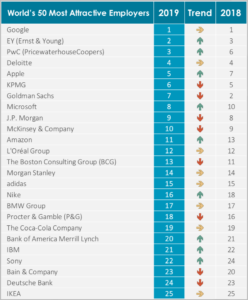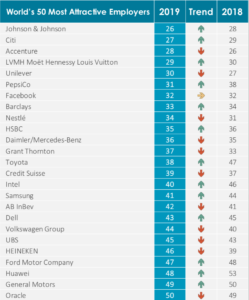True or False? It’s a common belief, in most Talent and HR circles, that most corporate recruiters fear agency recruiters. Go ahead and argue if you would like, but it seems a little silly.
The reality is, true recruiting professionals don’t fear amateurs.
It’s like a really great professional Photographer. They charge money because they offer something someone is willing to pay for. Professional photographers don’t fear the mom at the soccer game with her $2,000 dollar camera and $5,000 dollar lens. Who cares that you have the equipment if you don’t know how to use it!? Pros don’t fear amateurs.
So, if you are a really good corporate recruiter who knows how to really recruit and source talent, agency recruiters don’t scare you, because you know your stuff! That’s the problem, though, right? The reason so many people feel the title of this post is true is because we all know so many corporate recruiters, who really don’t know how to recruit. They aren’t pros, they’re amateurs. Amateurs fear professionals when it comes to meeting head to head in competition.
The best professionals love it when a talented amateur tries to play at their level. These types of individuals help to push both parties to do the best work they can. Or, at least, they should! A great agency recruiter should push an average corporate recruiter to want to get better. An amateur agency recruiter will starve, that’s why you only see amateurs in the agency ranks for a very short period of time. If they aren’t good, they don’t eat! That is why on average, agency recruiters tend to have more recruiting skills than corporate recruiters. Agency folks aren’t full salary. How they are compensated forces them to have better skills, on average, of they are out of job.
So, how do corporate recruiters ensure they become professionals? Well, I love Malcolm Gladwell, so I’ll steal a little of his 10,000-hour concept (and go ahead and tell me it’s B.S. – I don’t care, I like it and I’ve seen it work). You must make yourself a true recruiting professional! You need to invest time and development in yourself, in the recruiting industry, to become a pro. That means as a corporate recruiter, you focus on recruiting, not becoming an HR Pros. What?! Most corporate recruiters are corporate recruiters because that’s their path to get into a straight HR position. Their endgame is not recruiting, it’s HR. That’s a problem because they are not fully vested in the recruiting game. This is an amateur move.
The reality is, those who get promoted are usually professional at something. Become a great recruiting pro and the powers-that-be will take notice, and you’ll find yourself in positions you never thought possible. True professionals don’t worry about promotions, they worry about becoming a better pro at their craft.
The next time you start feeling yourself pushed by an agency recruiter, don’t curse them for what they do, embrace them for what they push you to become — a better recruiter!


